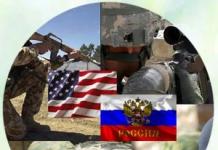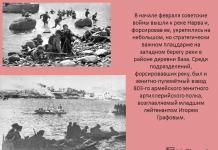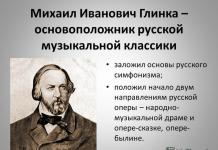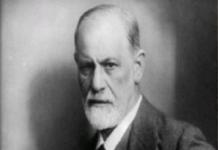The Ukrainian side, due to its old habit of falsification, is completely confused about who the Ukrainian Armed Forces captured on May 16th.
The leadership of the Ukrainian state convinces the public that the prisoners are officers (Alexander Alexandrov and Evgeniy Erofeev) from the special forces brigade of the GRU General Staff of the Russian Federation, stationed in Tolyatti. The source of President Poroshenko’s information is the Facebook page of Grigory Maksimets, a medic from the punitive battalion “Aidar”. This Maksimets is generally a strange person; he personally and publicly writes with humor about how a wounded Russian officer underwent surgery WITHOUT ANESTHESIA, that is, like in Hitler’s concentration camps.
The oddities of the “medic” Maksimets do not end there. Having written about the capture of “two officers” of the special forces, a few days later he turns around and writes that one of the prisoners is not an officer at all, but a sergeant. And not a special forces soldier, but a medical instructor, a “colleague” of Aidar soldier Grigory Maksimets. Or a special forces medical instructor. That is, according to the law, a military medical instructor is not a participant in hostilities, a combatant. The responsibilities of the medical instructor include the following: “the medical instructor personally provides first aid. Together with the orderlies, the medical instructor must organize the provision of self- and mutual assistance, search, removal and removal of victims from the battlefield (from the outbreak) and take measures for their evacuation.”
The so-called “medic” from the “Aidar” battalion, Grigory Maksimets, may not know this, since he appeared on his Facebook with a machine gun in his hands (see photo). In recent interviews with the Ukrainian media, Maksimets did not miss the opportunity to put into the mouth of the captive Russian medical instructor words of praise about Ukrainian military field medicine, admiration for Ukrainian medical instruments, medicines, dressings, and everything that you cannot find in the Russian army and medicine during the day. Truly, “it hasn’t died yet”: “According to our colleague, he (sanitary instructor Alexandrov) highly appreciated the help that was provided to him here, appreciated the quality of the instruments that were used. And the kits that we have for this, according to him According to them, they showed their photograph on social networks with the date and the inscription “I’m home!” Maybe during the interrogation they mistakenly entered their first and last names? Or maybe they simply falsified them, like the photographs of a captured Russian officer with “wandering wounds” that appeared after the event? ? Either on the right hand, then on the left...
A national hunt has been declared for Russian military personnel fighting in Novorossiya. Good bonuses are promised for the capture and capture of a “real” Russian. The catch so far is not large; of the 10 to 50 thousand declared by Poroshenko, only a few have been caught. Isn't this concrete proof that there is no Russian regular army in Donbass? No one denies that Russians, volunteers, including professional military personnel, advisers and specialists, serve in Novorossiya. But you need to understand the difference between specialists and the regular army. And Poroshenka may even have a stake on his head, everything is the same. “Catch a Russian” is a Ukrainian national game with a good prize fund, but which is impossible to win.
During the Great Patriotic War, the Soviet government did not issue a single instruction document on the rules of conduct for ordinary Red Army soldiers and officers in captivity. On the contrary, all Red Army soldiers who surrendered or were captured were officially considered traitors and traitors to the Motherland, and their families were repressed.
Law and reality
Formally, a fighter or commander who was captured due to circumstances beyond his control or due to a radically changed situation should not have been held accountable as a war criminal (execution with confiscation of property) - this followed from the interpretation of Articles 58-1b and 58 -1 “a” of the Criminal Code of the RSFSR, as well as Article 22 of the Regulations on Military Crimes (Article 193-22 of the Criminal Code of the RSFSR).
In fact, at the front, since August 1941, I. Stalin’s orders No. 270 and No. 227 were in effect (the famous order “Not a step back!”, adopted in July 1942). According to them, any surrender was regarded as betrayal and treason, and the traitor was subject to execution.
How many commanders were captured
The Main Personnel Directorate of the Ministry of Defense of the Russian Federation provides the following data on combat losses of army and navy officers during the Great Patriotic War: over 392 thousand missing. How many of this number of officers were in captivity is, for a number of reasons, impossible to say with certainty even today. Firstly, because there was no special accounting of military personnel who were captured during hostilities. Secondly, according to German documents, officers often passed as privates - commanders deliberately demoted themselves in rank, fearing execution.
It is only known that 80 Soviet generals and brigade commanders were captured by Germans in World War II. The overwhelming majority of these officers refused to cooperate with the Nazis.
Officers were separated from privates
For captured officers of the Red Army, the Nazis had special camps - oflags. When captured, officers and privates were immediately separated from each other so that commanders would not have the opportunity to incite former subordinates to revolt. The need for such “sorting” was spelled out in Directive No. 21 of the Barbarossa plan. The Germans most often immediately shot commissars, special officers, military prosecutors and political workers.
One of the largest oflags was located in Vladimir-Volynsky. The captured Soviet officers there were divided into four groups according to their national composition. The Nazis did not have a special attitude towards the captured commanders - they were also exterminated en masse, including in the death camps of Buchenwald, Auschwitz, Mauthausen and others.
According to World War II and Holocaust researcher Aron Schneer, since 1942, all captured Red Army officers who had civilian specialties began to be sent to work at enterprises of the German military-industrial complex. Commanders who knew foreign languages worked in German offices. Until 1943, there was a Military History Cabinet, which included captured Soviet officers up to and including lieutenant colonels - they wrote the history of the military operations of their units, while pointing out errors in command both on the part of the Red Army and the enemy.
General Karbyshev's rules
Some officers, including those from the senior command staff of the Red Army, being captured, agreed to cooperate with the Nazis. The most famous of the traitors is General Andrei Vlasov, who became the commander of the so-called Russian Liberation Army (ROA). However, most of the captured officers did not succumb to persuasion to become Nazi collaborators.
A striking example of this is the fate of Lieutenant General of the Engineering Troops D. M. Karbyshev, who died in Mauthausen in February 1945. In captivity, Dmitry Mikhailovich was persuaded to cooperate for a very long time and unsuccessfully. The courageous general is credited with creating the “Rules of Conduct for Soviet Soldiers and Commanders in Captivity.” Their text was transmitted orally and subsequently successfully passed an independent authentication test when interviewing four Mauthausen prisoners liberated from a concentration camp.
The rules consisted of 10 points. This is what soldiers and officers who were captured by Germans had to do:
stay organized and united wherever you are;
do not leave the sick and wounded in trouble, generally show mutual assistance;
do not humiliate yourself before the enemy;
do not forget about military honor;
with their unity and cohesion to force the Nazis to respect themselves;
fight against fascists, traitors and traitors to the Motherland;
organize for sabotage and sabotage;
escape from captivity as soon as the opportunity arises;
do not betray the military oath and your homeland;
debunk the myths that Hitler's Germany is invincible.
Instructions for American Captivity
This memo was distributed to American military personnel in May 1944. Comparing the brutal conditions of detention of Soviet prisoners of war in Hitler’s camps with the “vegetarian” rules of the Americans there, we can say that the very first phrase of the War Department pamphlet No. 21-7 “If you are captured, here are your rights” sounds mockingly: “It is bad to be a prisoner of war "
The Americans, according to the Geneva Convention, which set out the rights of prisoners of war, received parcels from the Red Cross in fascist captivity; the conditions of detention for the Yankees were disproportionately better than those of Soviet prisoners. The above-mentioned pamphlet, in particular, said that the Nazis could use captured American officers only in command positions. There should be no talk of any dangerous or harmful work for commanders.
valery_brest_by writes in Forbes“Here it turned out that the reason for the attack on the police department in Donetsk was the suspicion that the police, who were under the control of Kyiv, were collecting information about the militia. In Gorlovka, Bezler, for example, did not at all deal with the local traffic police, who were subordinate to Kiev , - they say, they mind their own business and don’t get involved in politics. They were even armed with machine guns, since these are turbulent times of war. The regular police have sworn allegiance to the DPR, although they still receive salaries from the Ukrainian government.
All enterprises, all banks operate in Gorlovka; here, unlike Donetsk, no one robs them. It is through them that Kyiv pays pensions and salaries to state employees; this state of affairs suits everyone here.
The main part of Bes's troops are local miners.
The directorate of the mines was forced to agree to the condition put forward: the volunteers who replaced the jackhammer with a machine gun would retain their jobs and average salary."
“Igor Bezler gives the command to take us to the Ukrainian prisoners, whom he himself insistently calls “my guests.” Several offices have been set aside for them, where Gorlovka operatives apparently once sat. Mattresses are thrown on the floor instead of beds, and there is a TV in each room .
The “guests” of Bes, and there are fourteen of them in total, are unescorted, that is, they can move freely around the building. They eat in the canteen on a common basis with the militia. We were also fed in the same dining room. On that day they gave meat soup, pilaf, salad, apples and sweets.
Everyone is allowed unlimited contact with relatives. Moreover, if one of the mothers of captured soldiers wants to come to their son in trouble, this is not forbidden. The mothers are put on allowance and housed in the same building, in return they help in the kitchen.
The same rule applies to the wives of captured officers. The deputy battalion commander of the 72nd motorized rifle brigade of the Ukrainian army, Captain Zasukha, lives with his wife who came to him. She says that Bes personally contacted her and gave her security guarantees in case she came to her husband.
Captain Drought himself claims that at Bes they are simply waiting to be exchanged for captured militiamen. He adds: and thank God that they are waiting with Bes, and not in some other detachment. The captain has something to compare with; he was captured by completely different people from the so-called Russian Orthodox army."
"P.S. Lieutenant Colonel Igor Bezler, who allegedly hates journalists, allowed us to come to him, to be freely among his entourage during staff work, in private conversations with us he was extremely frank, but he and his deputies refused to give interviews. In this regard, all the information information contained in this article cannot be considered to have been received from him personally."
Current page: 1 (book has 22 pages in total)
Font:
100% +
Petr Nikolaevich Paliy
Notes of a captured officer
Part one.
Start of the war
In my notes about the years spent in German captivity, dozens of people appear, some of whom I came into contact with in one way or another during this time. All those whose deaths I know for sure, as well as those who, due to their age, could not live to the present time, are called by their real names. I also give the real names of those who, due to their activities in the living conditions of the prison camps, deserve severe censure and condemnation, with the hope that one of them is still alive and reads these notes, he, remembering the years of captivity, will blush with shame for his behavior. I hide all those who, in all likelihood, have lived to our age, “here” or “there,” under the masks of fictitious names, for obvious reasons.
Anyone who reads these notes about the events of 1941-1945, now, in the second half of the 80s, will, of course, be able to find both inaccuracies and a large dose of naivety, both in assessing what is happening and in predicting the future. Then we, the mass of prisoners of war in the camps of Poland and then Germany, were completely isolated from the whole world by rows of barbed wire and bayonets of German guards. Information about world events was extremely limited, and what was leaked to us was usually distorted, filtered, or deliberately propagandistic. But to write about how we thought, how we lived, experienced events, what hopes we had for the future, making adjustments to the knowledge and understanding of history accumulated over the next 40 years, would simply be dishonest. Therefore, collecting all the old notes, documents, drafts and other materials into one whole, I tried to remain who I was then, 40 years ago.
1. Just before the war
My military career began suddenly, without warning, preparation and without the slightest desire on my part for such a radical change in my whole life. A few days after the New Year, in January 1941, I was informed from the military registration and enlistment office that I was called up to serve in the Red Army and enlisted in its cadres with the rank of military engineer of the 3rd rank. The order that I received in my hands, on the letterhead of the People's Commissariat of Defense of the USSR, stated that I must hand over my official files and report to the military registration and enlistment office on January 15 to receive documents and leave for my destination.
The management of the trust in which I worked made an attempt to keep me at work and get the order of the People's Commissariat canceled. The director of the Muzyka trust traveled to various institutions, made phone calls to Moscow, the Main Directorate of the Energy Industry, and the People's Commissariat of Defense, but to no avail. The efforts of the chairman of the Kyiv City Council, a man with the piquant surname Ubiybatko, who acted along the party and public line, also did not help. The order remained in effect. I don’t know how much sincere desire there was to keep me in the service on the part of the trust’s management. It probably was. In the system of our trust, I was considered one of the best installation engineers, and when, after several well-performed works by me, I was appointed to the position of chief engineer for the installation of a new power plant in Kyiv, it was not by chance. The construction of the station was a shock project, and it was supposed to be carried out using high-speed methods, and I was the author of several articles in the technical magazine “Heat and Power” devoted to this particular issue. In addition, I was a senior consultant on the team developing the work management design for this new plant. So my candidacy for the post of installation manager was logical.
But there was another side to this coin. My past was dirty. When, almost immediately after graduating from the institute, I was called up to serve military service, I already had the rank of military engineer of the 3rd rank. At the institute, we all underwent pre-conscription training, drill training, participated in army maneuvers, and also attended a number of courses of a purely military nature and had to receive no less than a “satisfactory” grade in them. The titles were assigned by a special commission, those who were better received “military engineer of the 3rd rank”, and those who were worse received “military engineer of the 1st rank”. I turned out to be “better”. Such newly minted military engineers were sent for mandatory service not to combat units of the army, but to military industry enterprises subordinate to the People's Commissariat of Defense. We had to work in this system for two years, and after this period we were transferred to the reserve and returned to civilian life. I honestly served my two years on the construction of a defense plant in the Kazan region, but when the time was coming to an end, we were all asked to sign a statement that we, “military production workers,” express a desire to remain in the system of the People’s Commissariat of Defense forever. Of the 14 engineers who completed two years of military production service at our plant, 5 people signed these statements, and the rest refused, including me. They did not let us go, they persuaded us, they frightened us, they insisted, we desperately resisted and demanded that we be released “to freedom.” I turned into the leader of the resistance movement, but instead of being released, I was arrested and spent almost 9 months in the internal prison of the GPU administration on Chernyshevskaya Street in Kazan.
I was immediately accused of all mortal sins. In bourgeois nationalism, chauvinism and separatism, obviously because I received from Kyiv the Ukrainian newspaper “Proletarska Pravda” and various books in Ukrainian. I was accused of anti-Soviet propaganda and agitation directed against the government; this was, of course, a consequence of my “leadership” in a group that did not want to stay working at the plant. I was also accused of economic counter-revolution - why, I still could not understand... During my time in jail, I was called in for interrogation 30-35 times, either during the day or at night, I received my share of massacres, though without injury, and then, so suddenly, just as they had been arrested, they were released, without trial, without a formal investigation, but only with a ban on living in the capitals of the republics.
I was young, just starting my job as an engineer, my social background was quite decent and there were no suspicious activities in my still very short life. One way or another, I ended up in Kyiv again, in the same trust where I worked in the last two years of my student life and immediately after receiving my diploma. But with a spot. The head of the Special Department, who knew me from the moment I joined the trust, showed me a note in my file: “A capable, knowledgeable engineer, a good administrator, can be used in responsible management work, but under special supervision, politically unstable.” When in 1935 the capital of Ukraine was transferred from Kharkov to Kyiv, no one ordered me to get out of Kyiv, and I continued to work in the capital. Party circles in the trust were not particularly happy that the position of chief engineer of the “shock construction project in the capital of the republic” was taken by a non-party person, and also “politically unstable,” but for now they tolerated it. However, I felt that the time was approaching when I would be transferred somewhere. I even knew for sure who would take my place: Boris Kogan, my colleague, a good engineer and with a party card, was sent to a specially newly created position of “deputy chief engineer.” It was very disappointing, because... I loved my work very much, devoted a lot of time to it, enthusiastically introducing theoretical methods of high-speed block editing into life, achieving positive results and recognition of their profitability and efficiency. In particular, I felt this “other side of the coin” when one day I had to replace our construction director Miron Tovkach in his weekly report on the progress of work to the “owner” himself. Nikita Khrushchev was very interested in the construction of the station. After listening to my report, Khrushchev made a couple of comments, asked several questions and gave “operational instructions,” and then looked at me point-blank with unpleasant, hard, slightly swollen eyes and said: “What are you doing? Not a party member or even a candidate! Why is this? And what did you do wrong there in Kazan? Have you put your brains in place? You occupy a responsible place, you are entrusted with a lot! Look, my friend, don't mess it up! Well, come on, I don’t have time to talk now... but you and I will meet. Go to the construction site!
My wife took the news of my joining the army very calmly. (This was my second marriage. The first, a student one, ended in divorce. I was not yet twenty years old when, during a summer internship at a factory in Donbass, I met a student from another city. While we lived and studied in different cities, everything went well. But when we moved in together and started living together, we both decided that we shouldn’t have done what we did, and we separated). We lived together for almost ten years, but since she became an actress in the drama theater, our paths began to diverge. I wanted a family, and she became more and more interested in theatrical life and her career, by the way, which was quite successful. “It’s very sad, but, of course, I can’t go with you somewhere into the wilderness. This would mean putting an end to my future, to the theater. And losing an apartment in Kyiv is also stupid. We'll have to live apart for a while. I am sure that Uncle Tolya will be able to help so that after a while you will be transferred to the center, to the district. He has great connections in Moscow..."
Her uncle was a general of the technical troops, worked in the People's Commissariat and lectured at the Military Academy. Frunze.
Of course, my wife was right... And I left to “live apart” in unknown places, in a completely new situation, insulted, offended, indignant, lonely and completely helpless to change anything. After spending a day in Minsk, at the headquarters of the Belarusian Military District, on January 17 I found myself in the town of Vysokoye, 25 kilometers from Brest-Litovsk, where UNS-84, or the Office of the Chief of Construction No. 84, was located, where I was appointed to the position of head of the equipment group in planning and production department. I felt neither joy nor satisfaction from my “high” position.
At first they settled in the house of newcomers. This hostel was set up in a house that previously belonged to a wealthy Jewish merchant. They said that the first residents of this house, after the capture of this part of Poland by Soviet troops, discovered a treasure in the wall of some room. Since then, all the temporary residents tried their luck... all the walls in all the rooms had holes, the floors were raised, and here and there there were no floorboards.
I lived in this hostel for almost a week among unfamiliar, noisy, sloppy and mostly unpleasant people. Dirt in the rooms, dirty restrooms, inability to wash or rest. All the time, night and day, someone came, left, collected things or unpacked, all this was done with noise, often with arguments and swearing. In the middle of the night, drinking, conversations, obscene jokes and then drunken laughter suddenly began. If we finally calmed down and went to bed, then snoring and snoring did not contribute to rest.
UNS-84 was transferred here to Vysokoye from Slutsk immediately after the Red Army occupied western Belarus in 1939. The purpose of all this construction was to build a defense along the new border between Hitler's Germany and Stalin's Soviet Union. UNS-84 was in charge of work from Brest-Litovsk to Lomza, basically all objects were built along the Bug River. Over a stretch of more than two hundred kilometers, more than a thousand pillboxes, as long-term firing points were called for short, were built. Some types were quite large in size, several stories high, with heavy artillery. Groups of pillboxes in a given area were located in such a way that, if possible, the entire area was well covered and there were no dead zones for either machine gun or artillery fire. Each group consisted of a combination of different types of pillboxes, depending on the conditions and terrain, ranging from the simplest machine-gun nests to command posts with a central power plant, its own water supply, telephone and radio stations, staff quarters, a kitchen, ammunition and food warehouses.
It was supposed to create a completely impenetrable barrier. Construction was carried out in a hurry, with the mobilization of a large number of the local population. From the point of view of the art of fortification, the entire project was designed very well and, when carried out, promised to be very effective in terms of protecting the border from the advance of enemy ground forces. It was taken into account that if parachute units were deployed across the defense line and certain sections ended up behind enemy lines, then the system should function normally for several weeks.
The bulk of the equipment came from manufacturers in ready-made, assembled form. On site, in the central workshops, which were located 15 kilometers from the control center or the Cheremkha station, only some parts and simple parts were manufactured, such as ventilation ducts, parts of the water supply system, various supports, frames, etc. But - workshops were loaded with work not planned, but emergency. The fact is that the main project, for which equipment was manufactured at factories far inside the country, was very often amended at headquarters and here during construction, after the equipment had been received. Changing the position of the pillbox on the map, changing the angle of fire, and errors during concreting entailed many small alterations in the details connecting individual elements of equipment. There was a rush, a race, telephone conversations, hysteria from management, and emergency situations.
The chief engineer of UNS-84 was a military engineer of the 1st rank Lyashkevich, an undoubtedly intelligent man who knew the business of fortification, but a terrible coward and careerist. The main department of the construction management was the so-called. planning and production, whose chief was Colonel Sokolov, a narrow-minded, sluggish and limited-educated personnel officer-sapper. I was appointed to the position of head of the equipment group. Here I immediately found myself in a very unpleasant atmosphere. The point was that the main composition of the entire department, and, of course, the planning and production department, was staffed by workers transferred from Slutsk; it was a close group with its own methods of work, internal cohesion, long-term cohesion and its own group interests. They treated the newcomers sent “from civilian life” with hostility, suspicion and obvious prejudice. Every order, especially one that smacked of some kind of innovation, was met with controversy, objections, references to the fact that “we didn’t do that...” All this was aggravated by the fact that my deputy in the group was military technician 1st rank Krasilnikov, who considered himself offended , passed over for promotion and insulted, because he himself was aiming for my place. For him this was very important in terms of his career and in the sense of personal prestige and position in this small “elite” group of “Slutsk old-timers.” This Krasilnikov, among other things, would be a party organizer in the planning and production department, of course, an NKVD secret agent, a great intriguer by vocation, and generally an extremely unpleasant person.
The town of Vysokoye, or Vysoko-Litovsk, was located 20 kilometers northwest of Brest-Litovsk, where the center of the entire Fortified Area was located - UR. UNS-84, in relation to UR, was a contractor carrying out the latter’s orders. I went to Brest-Litovsk, mainly to see the city, famous for the fact that an agreement “peace without annexations and indemnities” was signed here in 1918 ", between Germany and the Bolsheviks. Officially, I went to get acquainted with the construction of fortifications. It was here, in the fortress of Brest-Litovsk, that extensive work was launched to modernize the fortress and several different fortifications and pillboxes were built. The head of the construction site on the territory of the fortress was an engineer I knew. builder, military engineer of the 2nd rank Yasha Horowitz. I met him at the Scientific and Technical Society in Kyiv. Horowitz, it turned out, was also mobilized even before me, and had already managed to get a good job here and even moved his family from Kyiv.
After touring the construction and talking business, Horowitz invited me to his apartment for lunch. He occupied an entire house on the outskirts of the city, had a servant, a Polish girl, and his own car with a driver. The whole house was furnished very well and richly. And Yasha himself, and especially his wife, Sonya, were keen on buying expensive and rare things. “Here you can get a lot for next to nothing compared to Kiev. Look: I bought these three paintings by Mayevsky for literally pennies, but in Kyiv or Moscow they can easily be sold for two thousand, because these are museum exhibits!” – Yasha enthusiastically showed me his acquisitions.
The dinner was wonderful, there was also a “museum” set on the table, and servants served at the table... Jascha Horowitz lived quite well here! He told me either an anecdote or a real case: in 1939, when the demarcation line was established between the USSR and Germany, in this area it ran along the main channel of the Western Bug River, and the main channel ran between the city of Brest-Litovsk and the fortress on island, and thus the fortress would have to fall into the hands of the Germans. As if, taking this into account, the Soviet command, 24 hours before the Germans arrived, transferred an entire division here, and by the time the Germans arrived, it turned out that the main channel had changed its course, went to the other side of the island, and the fortress remained in the hands of the USSR. “They say that ten thousand people worked almost exclusively with shovels for 24 hours, but they got the job done. The Germans were very surprised by this “geographically phenomenal event,” but they swallowed it,” Yasha laughed.
After a week of suffering in a hostel for visitors, I got a room in the house of a local school teacher. The teacher himself spoke Russian completely fluently, but his wife, Mrs. Mogulska, and his daughter Rysya, a pretty seventeen-year-old girl, and his son Kazik, a clever and very sociable boy aged 14, spoke with difficulty, despite the fact that it had already passed a year and a half since these places became part of the USSR. Kazimir Stepanovich Mogulsky was apparently well educated, well read, but extremely careful in his conversations. Only once did he let slip, saying that earlier, under the Poles, children in school in Poland received more knowledge, because less time was spent on “propaganda” sciences. He said and was terribly scared. He began to explain his thought in a long and confusing way and ended with a rather propagandistic statement: “But this is completely justified and absolutely necessary; we need to restructure the thinking of young people who grew up under capitalism so that they can be loyal and conscious citizens of their socialist country.”
Therefore, talking to Mogulsky was not particularly interesting. The Mogulsky house, in which I received a room, adjoined a large park surrounding the Pototsky palace, or rather, one of the many palaces of this famous family. There was a lake in the park, in the middle of the lake there was an island connected to the shore by an old stone bridge, and on the island there were the ruins of an ancient castle centuries ago. Mogulsky said that the first castle here was built in the middle of the fourteenth century, then it was rebuilt and remodeled many times, and from the end of the seventeenth century it was completely abandoned. Centuries-old trees now grew on the ruins, and the remains of the walls were covered with moss and bushes. I loved to come here in my free time and sit on the stones, imagining scenes from the long-gone life of Polish knights. Zbyszko, Pan Volodyevsky, Zagloba, Kmitic from Sienkiewicz’s “With Fire and Sword” were the heroes of these scenes.
The new palace was a long, partly two-story, but mostly one-story building, of very simple architecture, without pretension or luxury. The entire building, extensions and services were occupied by the headquarters of the 145th Infantry Division, units of which were stationed in the surrounding villages and hamlets. There were always a lot of military men in the park, on the streets, and in all the shops of the town, so it gave the impression that this was not a city, but a military camp. Even in the Mogulsky family, young lieutenant Yura Davydov, Lynx’s persistent suitor, was a regular.
My work was not going well. Krasilnikov behaved defiantly, clearly trying to provoke me into some rash act. I restrained myself and tried to behave exactly within the framework of the service regulations, talked several times with Colonel Sokolov about the need to normalize work in the group, but Sokolov, apparently, was afraid of Krasilnikov himself and did nothing. The matter ended with the fact that after one of Krasilnikov’s antics, I, angry, came to Sokolov and demanded his permission to meet with the chief engineer Lyashkevich and the head of the department, Colonel Safronov. He, recognizing his own helplessness, reluctantly agreed. As a result of this meeting, Krasilnikov turned out to be the winner. I wanted Krasilnikov to be transferred from my group to somewhere else, but instead the authorities decided to appoint me as head of the central workshops and the base at Cheremkha station. They assured that there was a more suitable job for me as an administrator and production engineer and that it was impossible to transfer Krasilnikov to another job because of his party position in the department. In fact, for me this was, of course, a promotion, since a total of more than 600 people worked in the workshops and at the base, and the management was quite tactful, emphasizing this circumstance in the construction order. The next day, everyone read that, “due to the administrative unification of the central workshops and the main material base for construction,” military engineer 3rd rank P. N. Paliy was appointed head of this new organization, the “central engineering and material base,” in the same The order stated that for the time being P. S. Krasilnikov, a military technician of the 1st rank, was appointed acting head of the equipment group in the planning and production department. In the end, I was even glad. Away from this hub of bureaucrats and party intriguers, the air will be cleaner. Two days later I said goodbye to the Mogulsky family and moved to Cheremkha. An apartment had already been prepared for me in the house of a Belarusian railway worker, in a village near the station. I was greeted very well and warmly.
Until now, there were two independent organizations on the territory of the base: “material base” and “central workshops”, subordinate in parallel to different departments in the management; now they were united and subordinate to the department of the chief engineer. Both the head of the workshops, Dudin, a civilian technician, and the head of the warehouses, quartermaster Lieutenant Lifshits, were glad that the time for bureaucratic feuds was over and all controversial issues could now be resolved on the spot, immediately, promptly, in the office of the general chief.
From the very first days I became interested in work. In addition to the technical side, which was carried out the old fashioned way, inefficiently, with very low labor productivity, and where much could be improved, the administrative and organizational side of the work required immediate close attention. Different groups worked both in the workshops and in the warehouses: military personnel officers, semi-disenfranchised from construction battalions, civilian employees from the Soviet Union and civilian employees or mobilized from the local population. These groups, by their position, were antagonistic towards each other, and this caused an endless chain of incidents, troubles and sometimes even fights and scandals. By nature, I was passionate about work if I liked it, and here, in Cheremkha, I threw myself into the business. He was one of the first to come to work and often returned long after midnight. My assistants Dudin and Lifshits were also inspired and tried with all their might to help me in my efforts to establish common work.
The most difficult part of the work was the everyday issues. All the workers sent, especially the construction battalion workers, lived in cramped, dirty, completely unsanitary barracks; the food was simply prison food, half-starved. There was a canteen at the base where all workers could get lunch, very low quality and limited in quantity, and that's all. They all had to organize breakfasts and dinners for themselves. In the barracks it was possible to get only hot water, and then only at certain hours of the day. Construction battalion members, who were in the position of almost prisoners, because these military units, upon conscription, included those who, by their social origin or because of some “sins before the authorities,” were not worthy “to join the ranks of the workers.” -peasant Red Army." They lived in separate barracks under almost prison conditions and received food three times a day... but what! It was difficult to demand anything from these hungry, angry and persecuted “disenfranchised” people.
Medical care was shockingly bad. For 600 people working at the base, there was a first-aid post, headed by a young doctor, mobilized straight out of college, with almost no practice. Under his command were three orderlies and four nurses working in two shifts. At the first aid station there was a room with six beds. The sick lay in the barracks if they did not have anything contagious, and the seriously ill were taken to the city hospitals of Vysoko-Litovsk or to the railway hospital in Cheremkha. Medicines and any other hospital supplies were far from sufficient even for half the workers. In three months of work, with the help of Boris Lifshits, who turned out to be a remarkably efficient, businesslike and intelligent man who sincerely wanted to improve the general situation at the base, and a fairly influential member of the party, I managed to correct and improve a lot.
There was a lot of work, but the main thing was that my efforts and those of my assistants clearly yielded positive results. There was a noticeable improvement in relations among the mass of workers, labor productivity increased, it was possible to get a second doctor at the first-aid post and, finally, to put the “food shop” in relative order and even open a permanent food stall on the territory of the base.
I set up a small bedroom behind my office and often stayed overnight at the base if I spent a long time at work.
On the May Day holiday, I received a four-day vacation and went home to Kyiv. On the way, I decided to stop for a few hours in the city of Kovel. This is where I was born. His father was then an inspector and mathematics teacher at a railway school, and his mother was in charge of an elementary two-year city school on the outskirts of the city. My mother was given a very decent apartment at the school, and there, on Kolodenskaya Street, I was born and lived until the day when the approaching Germans caused a complete evacuation in mid-1915. I was then five and a half years old. I wanted to look at the place where I was born, and for some reason I was sure that I could easily find it from childhood memory. And so it happened. Having walked half a kilometer along the railway, I saw a tunnel through which the road passed, which then turned into Kolodenskaya Street. Then I immediately remembered one incident. It was late autumn of 1914; Father, returning home, said that tomorrow Tsar Nicholas II would be passing through Kovel to the front and that the railway school, as well as the men's and women's gymnasiums, would meet the Tsar on the station platform. He promised to take my sister and me to this meeting. In the evening my mother and I were returning from the city in a cab; it was raining, damp and cold. In this tunnel, the mother saw a small child's figure pressed against the wall. Having stopped the cab driver, the mother recognized one of her students, Chezik Poplavsky, the smallest, most embarrassed and quiet boy in the school. During breaks I sometimes played with him; he was probably no more than eight years old. It was his first year at school and he still spoke Russian with difficulty. To the mother’s question: “What are you doing here, Chezik?” - He answered quietly: “Cheaving the checks.” He somehow learned that a “krul” would be passing by and decided to provide himself with an observation point in advance. His mother took him into the cab and took him to his parents. And the next day, my sister and I, dressed in the most formal suits, stood next to our father, also in full dress uniform, with orders on our uniforms and a “toad picker” on our sides, in the ranks of the railway school. The entire platform was occupied by a line of educational institutions of the city and all local authorities. The train approached to the sounds of the hymn “God Save the Tsar,” performed by a brass band and a large cathedral choir with the participation of the best choristers from schools and gymnasiums. To the sounds of music and singing, the train stopped, and the emperor came out of the door of the carriage, directly opposite the place where we were standing. Obviously, the first thing that caught his attention was my sister and me. He took a few steps, lifted my sister’s face by the chin and, bending down, kissed her on the cheek, and then gently ran his hand over my head and continued to walk along the line, accompanied by a large retinue. I remember his face and gentle, gentle smile well. Many times later the mother talked about this incident and, perhaps, was even proud of this “highest” attention to her children.
Now, without much difficulty, I found the house where there once was a school and our apartment. Over the past quarter century, there have been few changes. True, the street was paved and sidewalks appeared, and here and there there were new brick houses; behind the school, where there had once been an orchard and grain fields behind it, there now stood a row of four-story gray buildings. The half of the house where the school used to be was converted into residential apartments. I stood in front of the house and then entered the yard. The appearance of the Soviet commander created a sensation: curious faces of women and children looked out from all the windows, and several passers-by stopped on the street. I wanted to leave, feeling rather awkward, but an old Jewish man came up to me and asked what I wanted. I replied that I just came to look at the house where I was born. After a short conversation, the terribly excited old man remembered “Madame Teacher” and “the gentleman himself,” and even us children, “the pretty little lady” and “that little little lady,” he put his hand half a meter above the ground, me. He told me his name and said that all these years he had lived in the same house where he had lived before. The old man fussed and even shed tears when he learned that my parents were no longer alive. Grabbing my hand, he kept saying: “Oh, ah, ah... so handsome... sir, officer, very important sir...” I hastily retreated, afraid that the residents of Kolodenskaya Street might pay attention to such an unusual street meeting, and then I would have to to explain and prove something... I returned to the station and sat in the waiting room until the train arrived.
The trip to Kyiv brought only disappointment and left an unpleasant feeling that my wife and I’s life together was coming to an end. All three days she was “terribly busy”, a parade performance, then participation in several concerts, then a “team meeting” dedicated to the upcoming tour in Moscow, and for me, after a four-month separation, “life apart,” there was no time left. At night, when she returned, I listened to her stories about the upcoming trip to the capital and about her career hopes, but I did not feel much interest in my current situation and in our joint future. So I left for Cheremkha, my wife couldn’t even take me to the train, she didn’t have time...


























